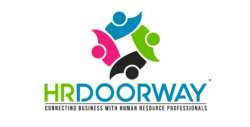Key HR topics for the 2nd half of 2025 are strategic workforce planning and adapting to the evolving skills landscape. This includes addressing the skills gap, potentially through skills-based hiring and continuous learning programs, as well as navigating the impact of AI and automation on the workplace. Another important area is employee well-being and mental health, with a continued focus on providing resources and support to employees. Additionally, HR leaders will need to address the challenges of distributed and contract-based workforces and leverage technology for efficiency and employee experience.
1. Strategic Workforce Planning & Skills Development:
Skills-based hiring and mobility:
HR will need to shift focus from traditional qualifications to skills-based hiring and create systems for skills-based mobility within the organization.
Developing a skills taxonomy:
Establishing a comprehensive skills taxonomy to identify current and future needs is crucial for aligning workforce capabilities.
Continuous learning and development:
Investing in learning programs that address both technical and adaptable “human” skills will be vital for future-proofing the workforce.
2. Employee Well-being and Mental Health:
Comprehensive wellness programs:
Expect a greater emphasis on providing employees with access to mental health resources, flexible work arrangements, and other wellness initiatives.
Return on investment:
Companies are recognizing the financial benefits of investing in employee well-being, including increased productivity and reduced turnover.
Building a culture of support:
Prioritizing employee well-being can lead to increased loyalty, engagement, and overall organizational success.
3. Navigating the Evolving Workforce:
Distributed and contract-based workforces:
HR will need to adapt to the changing dynamics of a more distributed and potentially contract-based workforce.
HR technology and automation:
Exploring and implementing technology solutions to streamline HR processes, improve efficiency, and enhance the employee experience will be critical.
Adapting to AI and automation:
HR will need to prepare for the impact of AI and automation on job roles and develop strategies for reskilling and upskilling the workforce.
4. Other Important Considerations:
Talent acquisition challenges:
Hiring remains a significant challenge, with low offer acceptance rates and high turnover among new hires.
Budget constraints and rising expectations:
HR leaders will need to navigate budget limitations while also meeting the rising expectations of executives.

